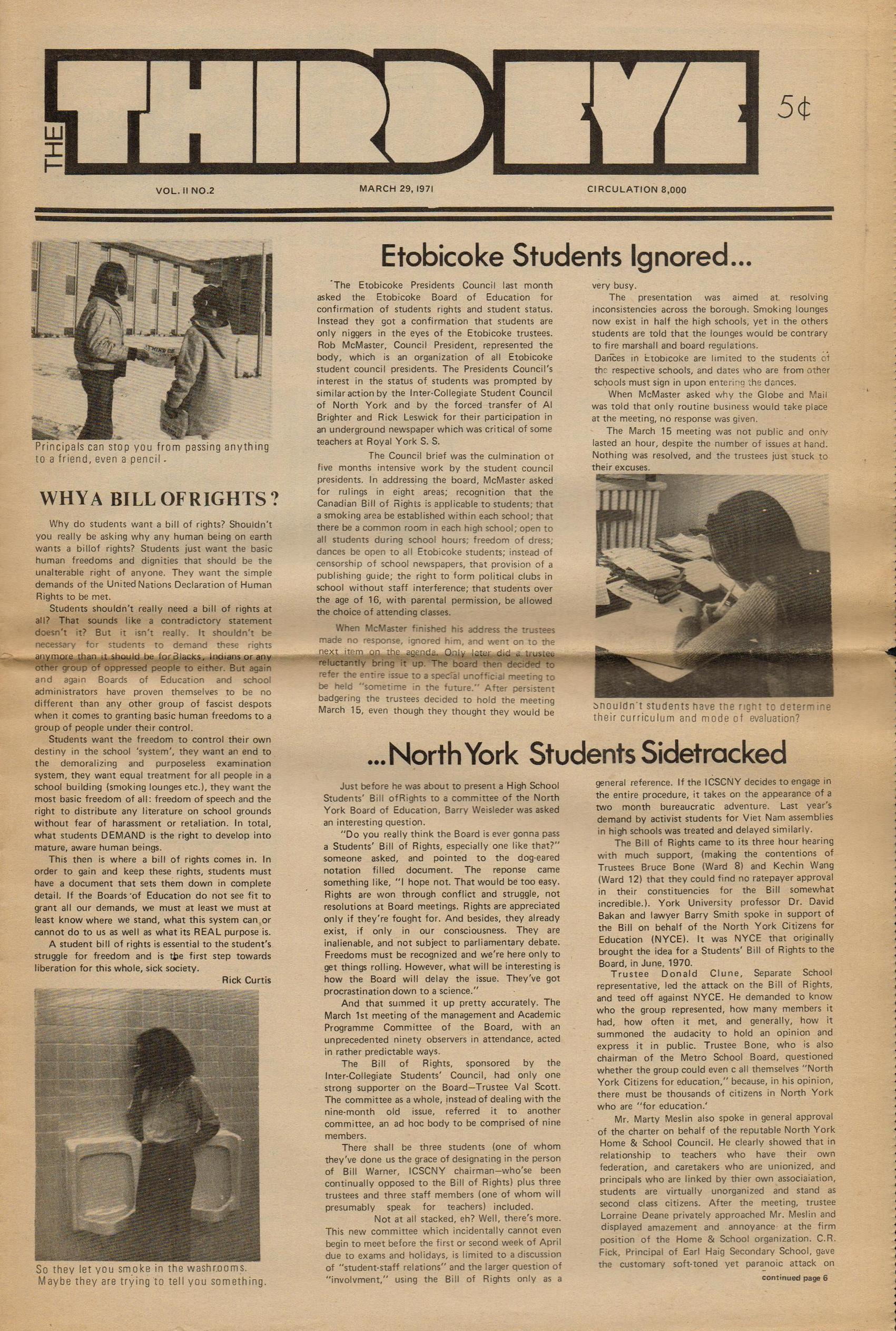
Information to change the world | |
Find Topics, Titles, Names related to your query |

Information to change the world | |
Find Topics, Titles, Names related to your query |
|
|
League for Student DemocracyIn 1969, a small group of student activists founded the League for Student Democracy (LSD). Amidst the political and cultural turmoil of the late 1960s, it probably wasn’t an accident that the organization shared an acronym with the decades’ most controversial and mind-altering drug. Its first members all attended Sir Sandford Fleming Secondary School. They were unhappy with their high school’s top-down authority, especially compared to somewhat freer schools like neighbouring Bathurst Heights Secondary School. They’d tried to make changes at Sir Sandford that would have given students some say in how their school was run, but were largely unsuccessful. They concluded that real change would only come if students across the Greater Toronto Area, and beyond, got together in one organization. Then, they’d have the necessary numbers to force more powerful structures, like boards of education and the provincial Ministry of Education, to make meaningful changes for the better. Schools were harsher and more restrictive than they are today: Students who disobeyed a school policy were often physically punished, with belts or paddles, and most schools didn’t have any elective courses. Female students were not allowed to wear pants. LSD wanted to change that. Its vision of what post-secondary education should be was much more liberating and expansive. Members thought that grades and examinations should be abolished and that classes would be less boring and more relevant if students had a say in designing course content. In less than a year, LSD grew to 270 members, with some living as far away as Ottawa and Windsor. Many of them – including four student council presidents – saw the benefits of uniting to make more systematic changes to the structure of education. They began lobbying and protesting. Students weren’t generally allowed to attend board of education meetings, so they forced their way in, demanding to be heard. They wrote up a student bill of rights, and presented it to Ontario’s Education Minister. To help circulate their ideas amongst fellow students, they began their own newspaper called Third Eye, and distributed thousands of copies of each issue. Members helped win important reforms at some individual schools, and were able to convince at least one education board to allow school-wide assemblies about the war in Vietnam. Even so, the fundamental structure of education stayed the same. “It’s summer now and liberation is at hand. Enjoy your holiday, but bear in mind, that the mind-fucking, death trap of school will once more confront you in September, and the League for Student Democracy, with your help and interest and enquiry, may be able to do something about it.” LSD’s key 7 demands were: Barry Greenwood – LSD’s vice-president was Barry Greenwood, who was equally passionate about film and politics. After graduating from high school, he enrolled in a college film program. The short film he made during his final year won the Palme d’Or for Best Short Film at the Cannes International Film Festival. Described as a “satirical parable on non-conformity and the rat race”, it can be seen as an extension of LSD’s intransigent style of politics. Barry went on to make several documentaries and became renowned for helping other independent documentary filmmakers. - Peter Graham Related Topics: Secondary Schools/High Schools – Student Activism – Student Issues – Students – Youth Activism Related Reading:  |